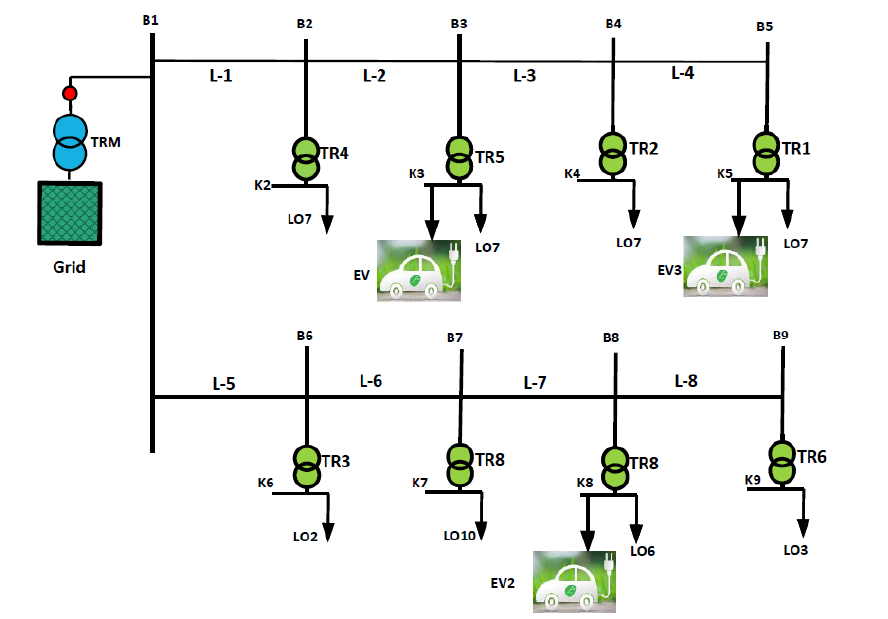Evaluating the Effect of Electric Vehicles Charging Stations on Residential Distribution Grid
Keywords:
Residential Distribution Grid, EV Charging Effect, Grid Stability, Power Losses, Voltage ProfileAbstract
This article investigates the effect of electric vehicle (EV) charging on the electricity distribution grids of residential areas. With the rapid increase in EV adoption, the additional load from EV charging poses potential challenges to existing residential distribution grids. The primary focus of this research is to understand how EV charging affects grid stability, power quality, and energy losses. To this end, a detailed model of the distribution grid was developed, incorporating the variable loads induced by EV charging over different periods. Through this model, the study explores the relationship between EV adoption rates and charging patterns, particularly analyzing their effects on the voltage profiles within the grid. Furthermore, the research quantifies the extent of power losses resulting from the increased demand created by EV charging. The findings aim to offer insights into the grid management complexities introduced by EVs and suggest practical approaches for enhancing grid reliability and efficiency. The results are intended to aid utilities and policymakers in making informed decisions to accommodate the growing presence of EVs, ensuring a smoother transition towards sustainable transportation electrification.





